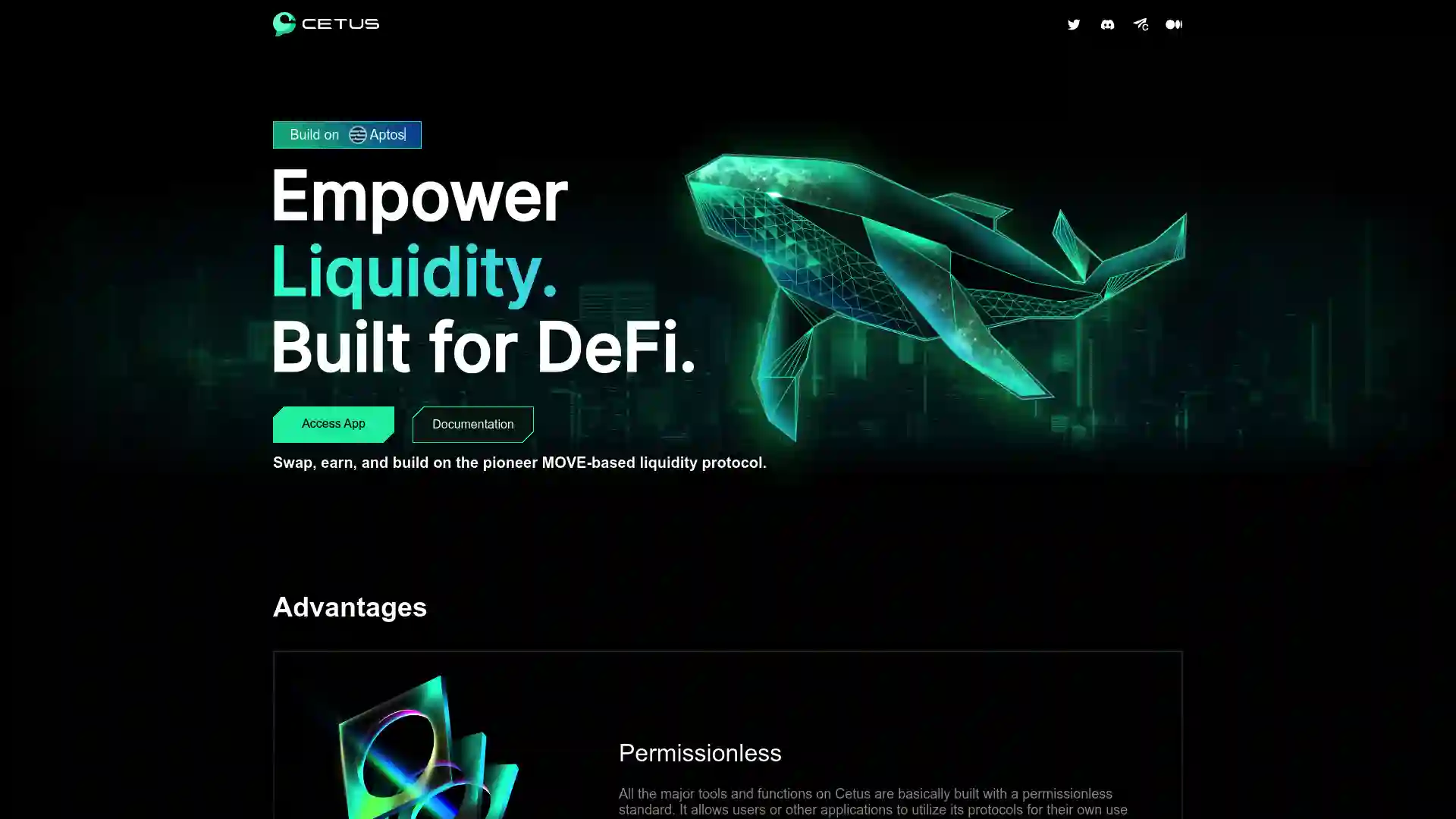Cetus Protocol (CETUS)
Cetus is a decentralized exchange (DEX) and concentrated liquidity protocol that operates on the Sui and Aptos blockchains. Its primary mission is to construct a robust and adaptable liquidity network, aimed at simplifying trading processes for a diverse range of users and digital assets. Cetus focuses on enhancing the trading experience and optimizing liquidity efficiency for decentralized finance (DeFi) users by developing a concentrated liquidity protocol along with a suite of interoperable functional modules.
The technology behind Cetus
Cetus leverages the advanced capabilities of the Sui and Aptos blockchains to deliver an efficient and effective trading platform. These blockchains provide the foundational technology that supports Cetus's operations, offering secure, scalable, and fast transaction processing. This technological base enables Cetus to facilitate a seamless trading experience while maintaining high standards of security and decentralization.

| Ticker | CETUS |
| Category | Decentralized Exchange (DEX) |
| Website | https://www.cetus.zone/ |
| @cetusprotocol | |
| Contract Addresses | |
|---|---|
| sui | 0x68...US Copied! Copied! |
Sui blockchain
The Sui blockchain is known for its high throughput and scalability, making it an ideal choice for platforms requiring fast and efficient transaction processing. It utilizes a novel consensus mechanism designed to enhance network performance, thus supporting the robust operations of Cetus.
Aptos blockchain
Aptos is another high-performance blockchain that underpins Cetus's infrastructure. It is designed to offer flexibility and speed, allowing for rapid transaction finality and ensuring that Cetus can handle a large volume of trades without compromising on efficiency or security.
Features of Cetus
Cetus offers a range of features designed to optimize the trading experience and enhance liquidity for users. These features are integral to its mission of providing a superior platform for DeFi activities.
Concentrated liquidity protocol
One of the standout features of Cetus is its concentrated liquidity protocol. This protocol allows liquidity providers to concentrate their capital within specific price ranges, enhancing capital efficiency and enabling better returns on investment. It ensures that liquidity is available where it is most needed, improving the overall trading experience for users.
Interoperable functional modules
Cetus includes a series of affiliate interoperable functional modules that extend its capabilities and flexibility. These modules are designed to work seamlessly with the core protocol, providing additional functionality and enabling users to customize their trading strategies according to their specific needs.
The mission of Cetus
The overarching mission of Cetus is to create a powerful and flexible underlying liquidity network that simplifies trading for all users and assets. By focusing on superior liquidity efficiency and an enhanced trading experience, Cetus aims to become a leading player in the DeFi space, providing users with the tools and resources they need to engage in efficient and effective trading.
